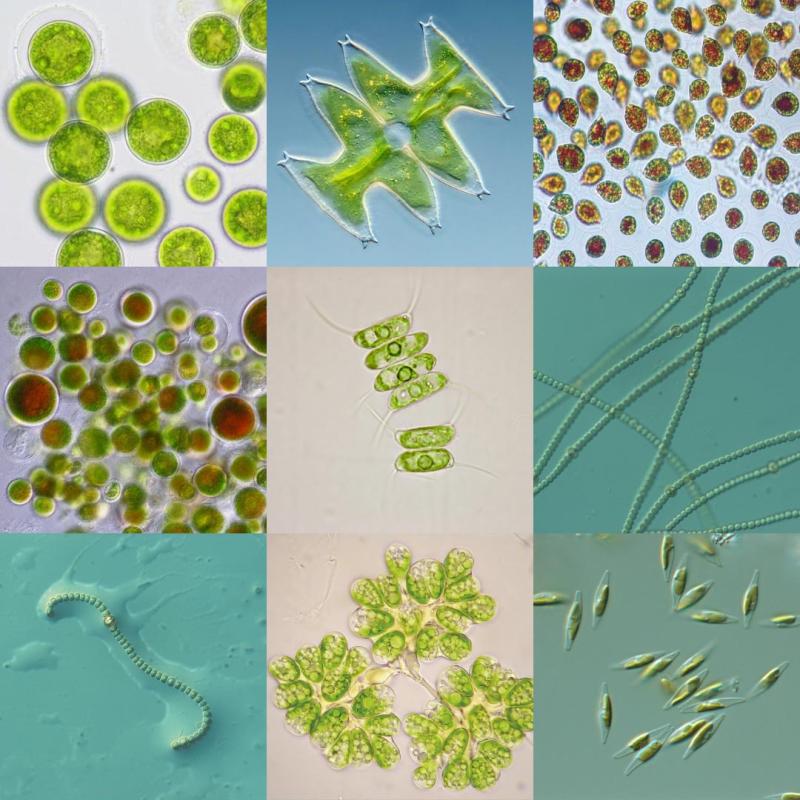Company grows microalgae to replace chemical fertilisers and pesticides in agriculture, improving soil health and the nutritional quality of food
Fifteen years ago, a successful entrepreneur called Augusto Rodríguez-Villa, decided he wanted to create a new company.
He heard about microalgae and learned that its vast potential wasn’t being met because knowledge was scarce and scattered. He met a scientist specialised in the subject, Miguel García Guerrero, and in 2007 they co-founded AlgaEnergy.
AlgaEnergy grows microalgae, then processes it into a rich biochemical composition that can replace chemical fertilisers and pesticides in crops while increasing yields and combatting climate change.
Its products are not fertilisers but bio stimulants, boosting plants’ uptake of nutrients −like nitrogen and phosphorus− increasing their resistance to drought and abiotic stresses, restoring soil health, and improving the nutritional quality of the food we eat, which has diminished over time.
Unlike GMOs that alter the DNA of plants, bio stimulants maximise the genetic potential of products.
Using microalgae in agriculture
Microscopic algae provide, at least, half the oxygen we breathe. “Three billion years ago, microalgae arrived before there was even oxygen in the atmosphere,” says Carlos Rodríguez-Villa Förster, son of Augusto Rodríguez-Villa, and managing director at AlgaEnergy in Spain. “They are the origin of all plant-based life.”
Also known as phytoplankton, microalgae are single-celled organisms abundant in our seas, lakes, and rivers. A nearly inexhaustible resource, they are among the world’s most efficient carbon sinks, transforming sunlight, water, and carbon dioxide into a carbon-rich biomass.

For the first decade of its existence, AlgaEnergy conducted research—testing various technologies, different species of microalgae, and a range of applications.
The founders considered entering the energy sector, but soon realised that it would take many years to untap microalgae’s potential as a biofuel. So, they shifted their focus to an industry where they could have an enormous effect, and relatively quickly: agriculture.
AlgaEnergy won second prize in the special category focusing on blue and green economy at the European Investment Bank Institute’s Social Innovation Tournament 2022, the tournament that recognises entrepreneurs who are making a remarkable contribution to society and the environment.
A natural resource of fertiliser
The use of chemical fertilisers in agriculture degrades the soil, pollutes groundwater, and emits nitrous oxide, a greenhouse gas 265 times more noxious to the environment than CO2.
Using pesticides in agriculture can contaminate soil and water while proving deadly to birds and beneficial insects.
“We want microalgae to grow as fast as possible, to create a concentration of cells that would probably not take place in nature,” Carlos explains. Microalgae don’t need arable land to grow, only sunlight, carbon dioxide, and water, but there is an art to cultivating them.
“It’s not like producing screws. These are living organisms, and when you change the conditions, they will change their behaviour. Even if you use the same species with the same technology and put it in a different place, the environmental conditions are different.”
As a pioneer in the field, AlgaEnergy has a big moat, and is the first B Corp in its sector. It uses a sustainable process to grow microalgae, inducing photosynthesis in an environment controlled for pH, temperature, and nutrient balance.
After working in a pilot plant for four years, the company built an industrial-scale facility in southern Spain, taking advantage of the region’s plentiful sunlight. It’s located adjacent to a combined-cycle power plant, whose chimney emissions provide the necessary CO2. Recycling keeps water consumption to a minimum.
Reducing chemical fertilisers by 20%
Currently, AlgaEnergy supplies its solutions to around four million farmers around the world, from large farms in Brazil to small ones in India, and that number is doubling every year.
Carlos says that by using AlgaEnergy’s products, they are able to reduce their chemical fertiliser input by up to 20% and still get better yields. But even though farmers today are coping with numerous challenges, they tend to be cautious about adopting new methods, since their income depends on the results.
Carlos would like them to consider AlgaEnergy’s products as an investment, not an extra cost—his argument is particularly compelling since the price of fertiliser has skyrocketed with the war in Ukraine. He advises them to start slow.
“If you have 20 hectares, try it on one hectare one year, and compare it with the returns of the other 19,’ he says. “Try five more the next year, and if it works you can roll out to 20.”
As the planet’s population continues to rise, so must global food production, but without doing further damage to the environment. With microalgae, Carlos says, “We’re going to the origins of life to find solutions for the future.”
